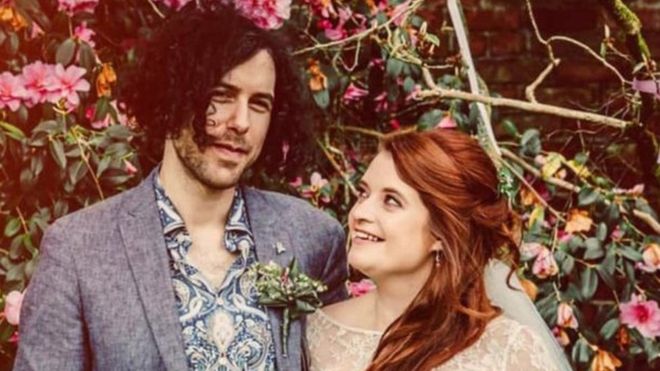
Emma De Souza with her American born husband Jake in citizenship row with British Home Office
Emma De Souza won a case against the Home Office after it deemed she was British when her US-born husband applied for a residence card.
The Home Office has appealed.
The Taoiseach said the Good Friday Agreement allows people to be British, Irish or both.
Ms De Souza’s case has thrown a spotlight on how Brexit could have consequences on identity and the rights of British and Irish citizens in the North of Ireland.
The UK had been due to leave the EU on 29 March, but the deadline was pushed back to 31 October after Parliament was unable to agree a way forward.
Anyone born in Northern Ireland has the right to identify as Irish or British or both, thanks to the Good Friday Agreement, signed in April 1998 by the British and Irish governments and Northern Ireland’s political parties.
But people born in the Republic who live in the North of Ireland can’t become British citizens under the Good Friday Agreement.
In Ms De Souza’s case, the Home Office rejected the residence card application in December 2015, as it deemed Ms De Souza was British, despite the fact she has never had a British passport.
She challenged the decision and won, but the Home Office is appealing and the hearing is pending.
Ms de Souza has said previously she fears Brexit could make the outcome even more uncertain.
Mr Varadkar told the Dail on Tuesday that he would be meeting UK Prime Minister Theresa May in Paris on Wednesday and that he expected next week’s UK elections to the European Parliament to be very interesting.
He said he believed the third seat in Northern Ireland was “very much up for grabs”.
Mr Varadkar added that EU leaders would assess the results in the following week.
Tags:




